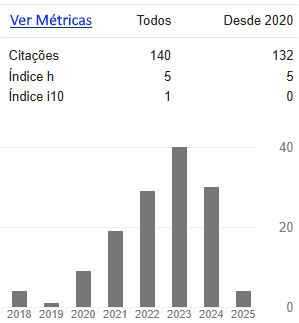GENERAL ASPECTS OF POLICY INELEGIBILITY: AFTER CONDEMNATION IN SECOND INSTANCE.
Keywords:
Eligibility, Clean Sheet Law, Conviction in second instance, HC 126.292.Abstract
The present work has focused on relative ineligibility for political positions, after a conviction in the second instance, even without having passed the sentence of condemnation, also considering the principle of presumption of innocence. The hypothetical-deductive method was applied in the elaboration, being based on the doctrinal, jurisprudential and normative construction, as well as bibliographical research through a wide reading of scientific articles, doctrine and jurisprudence. It is concluded at the end that the aforementioned law, although it is a reason for constant discussions in the legal arena, about its constitutionality, it is stated that it is not necessary to speak of unconstitutionality, since our Supreme Court understands that the arrest decreed in court does not violate the principle of the presumption of innocence. Therefore, this rule also applies to political agents, who, after having reaffirmed in second degree the conviction handed down by the court, may be commenced, which in full results in the condition of political ineligibility, implying the victim all negative conditions provided for in Law 135 of 2010.

